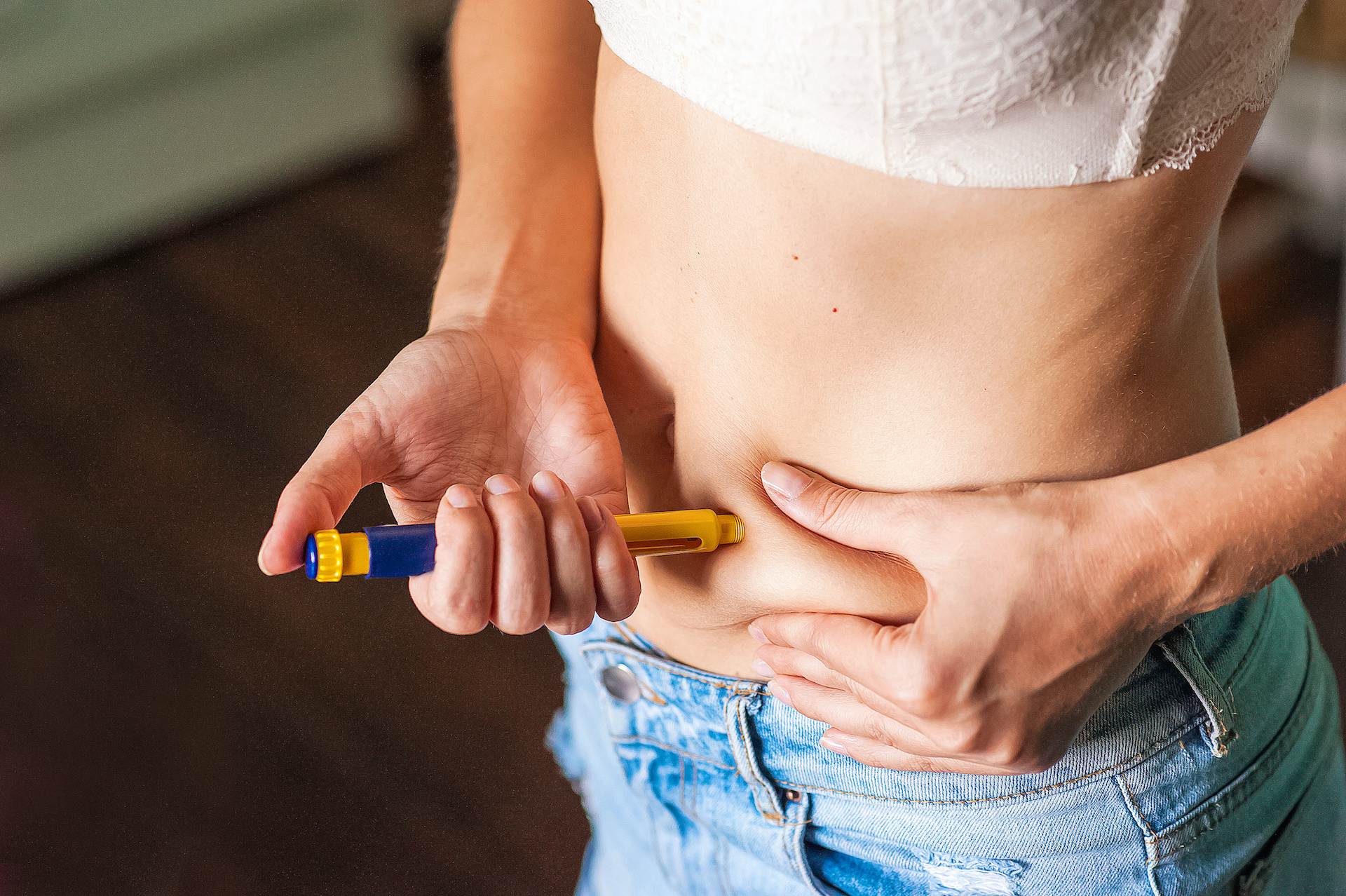 Dec 11, 2023 | by Lucy Solie-Vilker, Program Director
Dec 11, 2023 | by Lucy Solie-Vilker, Program Director
Is Egg Donation Painful? Understanding the Process and What to Expect
When considering becoming an egg donor, it's important to fully understand what the process entails before deciding whether it's right for you. Many potential donors may specifically wonder, “Is donating eggs painful?” In this blog, we share a comprehensive overview of each step and share insights from previous donors to help you know what to expect.
Does It Hurt to Donate Eggs? What Previous Donors Have to Say
While each journey is unique, egg donation is not generally described as a painful experience. Most donors report minimal discomfort throughout the process and no significant pain.
“Recovery was way easier than I thought it would be. My stomach was a little sore and I felt pressure but the very next day I was fine to go back to my everyday activities. “ - Donor B.

What Does Being an Egg Donor Entail?
The process involves several steps, including blood draws, self-administered hormone injections, a trigger shot, and an egg retrieval procedure. Understandably, these steps can seem daunting, especially if you’re unsure about what to expect. Below, we break down each phase of the egg donation process to give you a clearer understanding of what’s involved and provide insights from previous donors to give you a firsthand look at the egg donation experience.
While Egg Donation Isn't "Painful", It Can Be Uncomfortable
It's common for egg donors to experience discomforts such as bloating, cramps, and other PMS-like side effects; however, these side effects are typically short-lived.
“The only side effect I experienced during the cycle was bloating and very mild stomach cramps for a day or two after the retrieval.” - Donor J.
“The process is different for everyone’s bodies, my body takes very well to the medication and I always have tons of eggs so my ovaries are obviously stretched out, so it takes me about a week after surgery to feel 100% again. The recovery time shortens after every surgery I’ve had and the pain is very minor cramping and bloating. The process is so rewarding, that the temporary pain is totally worth it!” - Donor D.
1. Initial Screenings and Medical Evaluation
Before becoming an egg donor, you will go through a comprehensive screening process. This includes a review of your medical history, physical examinations, and psychological evaluations to ensure you are a good candidate for donation. These steps are crucial for your safety and the success of the donation process.
2. Ovarian Stimulation
Once you are approved, the ovarian stimulation phase begins. You will self-administer hormone injections for about 10-14 days to stimulate your ovaries to produce multiple eggs. These injections are done with a very thin needle and are typically not painful, though you may experience minor discomfort or bruising at the injection site. Side effects may include bloating, breast tenderness, and mild mood changes.
3. Monitoring Appointments
Throughout the stimulation phase, you will have several monitoring appointments to check how your body is responding to the medications. These appointments include blood tests and ultrasounds. Your doctor will adjust your medication dosage if needed.
4. Trigger Shot
When your eggs are ready for retrieval, you will take a “trigger shot” to prepare your eggs for the final maturation. This shot is a single injection, usually administered 32-36 hours before the egg retrieval procedure. The trigger shot can cause some temporary bloating or cramping, but it’s a crucial step to ensure the eggs are mature and ready for retrieval.
5. Egg Retrieval Procedure
The egg retrieval procedure is performed under monitored anesthesia care, ensuring you feel no pain during the process. The procedure takes about 20-30 minutes, during which a doctor uses an ultrasound-guided needle to retrieve the eggs from your ovaries. After the procedure, you may experience mild cramping or bloating, similar to menstrual cramps, but these symptoms usually subside within a few days.
“The egg retrieval itself was a piece of cake. I was in NO pain whatsoever. My only side effect was mild bloating for about 2-3 days, which is completely normal and was expected.” - Donor C.
Do the Injections Required for Egg Donation Hurt?
Although the thought of giving yourself injections daily may sound intimidating at first, your nurse will teach you how to self-administer injections properly to make sure that you are confident. The needle used for injections is very thin and should not cause any significant pain, but you may experience bruising or light bleeding at the injection site. However, most donors say they don’t experience any bruising or bleeding when done correctly. You can find instruction videos online.

“As the time approached for me to begin the shots, I grew a little nervous wondering if they would hurt, or if I would even be able to do them myself. I was thoroughly instructed on how to do them and was informed that they are practically painless… They weren’t lying! The shots were beyond easy to give myself and I felt little to no pain at all!” - Donor C.
- Related reading: How to Overcome Your Fear of Needles
Is Egg Donation Safe?
With years of advancements since egg donation was established in 1983, egg donation is now a routine assisted reproductive technology and is a well-established process. Essentially, egg donors undergo the same ovarian stimulation process that hundreds of thousands of IVF patients go through each year, in addition to thousands of women who freeze their eggs for fertility preservation. The fertility medications taken by egg donors for ovarian stimulation are widely used and considered low-risk.
If you have any questions or concerns at any point in the process, do not hesitate to contact your designated fertility clinic. The nurses and medical team are there to support you!
“Honestly, the daily injections are minimally painful and, when done correctly, have no bruising or bleeding. I almost look forward to my injections because it means I am one day closer to giving my eggs to the intended parents. Not all donors will react to the medication as I do but be prepared to gain a few pounds (easily lost after the donation). Personally, I had a rough recovery time after my first donation cycle. It took about three weeks for the bloating and discomfort to subside. I was extremely nervous for my second cycle. Never be afraid to talk to your doctor or nurse about your body and how you are reacting to the medication. I tend to tough things out, but in this instance, it can be more harmful than helpful. My second cycle was almost pain-free compared to my first, directly caused by my nurse and doctor listening to my needs and tailoring my medication schedule. If you have any unnecessary discomfort, tell your nurse right away. It makes the process so much easier on the body.” -Donor S.
What If There Are Complications, Like OHSS?
As with any medical procedure, the egg donation process involves potential risks, including OHSS. OHSS is caused when the ovaries over-respond to the stimulation medications. Nowadays, most cases of OHSS are mild cases that cause temporary discomfort. If you experience breathing problems, pain in your legs, severe bloating, abdominal pain, or other symptoms of OHSS, please consult with your physician. Even if you are having a mild case of OHSS, your physician will want to monitor you closely and may adjust your medications to help alleviate symptoms.
There Are Measures In Place to Keep Egg Donors Safe
Egg donation requirements and evaluations are all in place to keep you safe and increase the chances of a successful cycle; egg donors are healthy young women, typically between the ages of 19 and 29, with a healthy BMI, who have undergone a series of medical screening evaluations to determine they are a good candidate for egg donation.
Prioritize Your Health and Wellness to Minimize Discomfort
To set yourself up for the best experience, it’s important to prioritize your health and wellness throughout your cycle. For nutrition, increasing your electrolytes, fiber, and protein intake can be helpful. Additionally, getting plenty of rest, staying hydrated, and avoiding strenuous activities can help speed up your recovery. Taking care of your physical and mental health will help you feel more comfortable and will also increase your chance of having a successful cycle.
Find our best tips:
Conclusion: Is It Painful to Donate Eggs?
We hope this blog helped to address your fears and answer the question, “Does egg donation hurt?” To summarize, the temporary side effects during ovarian stimulation and the mild discomfort experienced after the egg retrieval procedure are typically manageable and short-lived. The best way to address any fears you may have of egg donation being painful is to do your research and be fully informed on what to expect from the egg donation process. It’s important to ask these types of questions to ensure you feel confident in your decision to become an egg donor!
Empower Yourself With Knowledge Every Step of the Way
If you are considering becoming an egg donor, we have many resources available in our blog to help prepare you for the process. If you have any additional questions, please feel free to contact our team. To get started, fill out our preliminary online egg donor application today!
Find Additional Resources in the Donor Nexus Blog:
- 7 Insights on Egg Donation Side Effects by Previous Donors
- Egg Donation Pay: Exploring Compensation Options (2024)
- Pros and Cons of Donating Eggs (From Firsthand Experiences)
- How Long Is the Egg Donation Process From Start to Finish?
- If I Donate Eggs, Is the Child Biologically Mine?
- Egg Donor Frequently Asked Questions Page
- Step-By-Step Overview of the Egg Donation Process
Disclaimer: The information provided in this article is not intended to replace professional medical advice. If you have any specific concerns or questions about the egg donation process, we advise you to consult with a fertility specialist who can provide personalized guidance and address your individual needs.
Ready to Get Started?
Apply online today and our team will be in touch to discuss the next steps!
Apply Now »
Most Beautiful Journeys...
“Donor Nexus has been an amazing agency to work with..I have already done 2 cycles with this agency and in the process of the third one! I have experienced the most beautiful journeys ever! They make the process so easy and convenient for you! They are always available to help and guide you..I highly recommend this place!”
– Donor M.N.
View Testimonials


